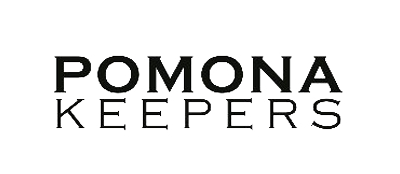“The international olive cultivation. The need to create added value: strategies for competitiveness, differentiation and promotion” was the slogan of one of the activities carried out prior to the World Olive Oil Exhibition 2020; it took place in Granada, where several olive oil experts reunited to talk about the sector’s current situation.
Just like every year, a number of activities announce the arrival of the World Olive Oil Exhibition, which will be held on the 18th and 19th of March 2020 in Madrid. The first of them to be carried out was the round-table discussion entitled: “The international olive cultivation. The need to create added value: strategies for competitiveness, differentiation and promotion” that was held in Granada. Eleven olive oil experts convened by Juan Villar, strategic consultant and advisor for the WOOE, reunited as well as Juan Peñamil, CEO of the Mercacei group and chairman for this event, and José Luis Murcia, executive director of the WOOE. “The reason why we have chosen Granada is because it is one of the provinces in which the best olive oil is made in our country, regardless of the fact that its production is lower than that of Cordoba or Jaen”, declared Jose Luis Murcia.
Juan Vilar, strategic consultant, kicked off the discussion stating the sector’s current situation: “We have a surplus of olive oil that brings prices down and that enables stocks to be maintained. Consumption is increasing and that equalizes production, however, now, for the first time in 21 years, there is a cease in olive grove planting in Spain. To remedy this situation, it is clear that the authorities have to increase the demand, so that the demand can be equated to the supply”. Accordingly, Juan Ignacio Fernández, head of the project of the institutional brand “Sabor Granada”, pointed out: “Brands such as “Sabor Granada” have been created precisely to boost these sorts of products: good products but with poor sales”. Apart from promotion, Alegría Carrasco, professor of the Department of Analytical Chemistry of the University of Granada, added another issue: “As a consumer, what I see is that the olive oil consumption is steadily decreasing in our country. In fact, I live in Italy and over there people have no problem spending 7 euros per litre on a good EVOO and here that does not happen, even less amongst young people”. In Spain, there is still a lack of educational information regarding olive oil, noted Manuel Alfonso Torres, president of Infaoliva Jaen: “We have invested millions in campaigns abroad and we have somehow neglected the domestic market. It is necessary to implement a campaign in the schools for children to be taught how to use olive oil”. Nevertheless, “although it is necessary to increase domestic consumption, even if we do achieve it, our production volume is so high that we have to go abroad and conquer other markets. And let’s be realistic: in Spain we are not going to sell olive oil at 6 euros per litre”, pointed out Lourdes Arrabal, head of the Agricultural Technical Bureau of Caja Rural (Granada).
Indeed, several speakers highlighted the fact that “In Spain we do not value that we are the leading global producer, we are not able to stand out once and for all, to place value on the product and communicate it to the consumer”, pointed out Antonio Rafael Almirón, executive manager of Aceites Algarinejo. “The consumer does not appreciate good olive oil, we have to reach and educate the consumer, although consumer habits are shifting. As a sector, what we don’t do nobody will, we should not ask the Administration to work miracles”, declared Enrique Delgado, general secretary of Infaoliva. Additionally, one of the important issues of olive oil is the strong regulation to which it is subjected and “hampers us from selling the health benefits of this product”, commented Amalia Torres, director of Oil Mill at Maeva Group.
In this debate, we also dealt with the fact that the olive oil sector is always focused on the consumption and production regarding the price instead of taking into account other factors. “Lack of differentiation, attribute of brand, promotion; olive oil continues to be considered as a commodity. Without attaining the same level of differentiation of wine´s brand and quality strategies, olive oil is a product that allows distinction and a series of fluctuations”, affirmed José María Valdivia, managing director of Ferias Jaen. “If we continue to spread messages to the market communicating that we have an “indigestible” surplus, this situation will not be fixed. The key, regardless of promotion and quality, is stock management”, concluded Eduardo Valverde, manager of SCA San Sebastian.
As a conclusion, Francisco Javier Cuberos, executive director of Agroisa Group stated: “It is necessary to encourage sustainability and the development of by-products in order for the olive oil extraction industry to have continuity and not be so temporal, in addition to developing new technologies and uses by companies to achieve differentiation compared to other sectors”.
![logo-wooe[2] logo-wooe[2]](https://oliveoilexhibition.com/wp-content/uploads/2021/06/logo-wooe2.png)
